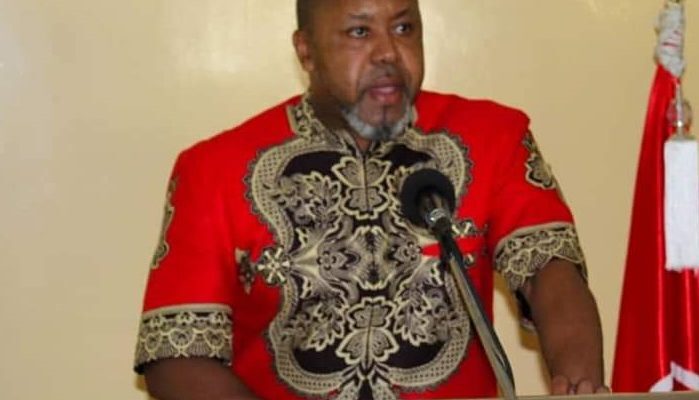
Vice President Saulos Chilima says restricting Malawians to their homes for three weeks without giving them food is condemning them to death by hunger.
Chilima, who is also UTM leader, made the remarks today in a statement on the national situation and response to COVID-19.
In his statement, Chilima noted that the majority of Malawians in urban areas live in modest housing where they do not even access to running water in their homes and must access their water either at kiosks or boreholes – which may be some distance from their homes.
He also reminded government that these people do not access to electricity hence cannot stock up food in refrigerators; and they have to go to the market on almost a daily basis to get their food.
“In fact, they go out every day to earn only enough to buy food for that particular day. They live hand-to-mouth. Shameful levels of poverty mean that most of these people do not have any savings at all,” he said.
Chilima also noted that there are similar conditions in the villages. He then asked government to design a lockdown that should recognize that for the majority of Malawians they must leave their homes to go and draw water, for instance.
“It is clear that the lockdown that was announced by the government had not been well thought through and had clearly been rushed. We cannot avert thousands of deaths due to coronavirus and yet cause millions of death due to hunger, malnutrition and depression,” said Chilima.
He said a lockdown in Malawi should firstly be based on public health imperatives and should also be supported by credible interventions such as testing on a large scale as well as contact tracing.
“People should also be cushioned from the economic effects of being prevented from earning their daily wages,” he said.
The UTM leader warned that if government rushes to mobilise the military and the police service to enforce the lockdown without addressing people’s concerns, it will simply be pitting the servicemen against the very same people they have sworn to defend.
“We will further be creating room for social unrest and possible grave violations of human rights. This is a path best avoided. A lockdown can only be effective if people have capacity to comply, in our unique situation the population needs government support before they can afford the level of compliance that is needed.
“Only when these are guaranteed and can be scaled up from advice from health experts will a lockdown make sense,” said Chilima.
Malawi has recorded 34 cases, out of which three people have died and four have recovered. Government wanted to lock down the country from April 18 to May 9 but the move was blocked by a court.
Chilima in his statement, also expressed concern over the system of requiring COVID-19 infected people or those who might have been exposed to the virus to self-isolate or self-quarantine.
The UTM leader said the system is not working due to lack of follow-up and reinforcement and because some people live in already crowded homes.
He urged government to abandon the system or revise the home isolation protocols to include active reinforcement and follow up, as well as to create an institutional option for those who have no spare room in their households.
He said: “Institutional isolation centres need to be fit for purpose and human occupation. It is pointless to put people in these centres or facilities if there is no guarantee of scrupulous hygiene, quality medical care, personal security and food.














